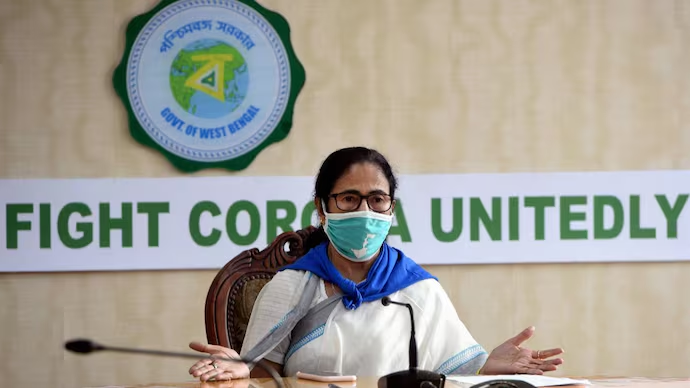Ban on Durga Puja? Mamata Banerjee Slams Rumors: ‘They Should Understand the Truth’
West Bengal is a state where culture, tradition, and religion interweave to form a vibrant social fabric. Among the most revered festivals is Durga Puja, an annual celebration that transcends religion and is cherished by millions. The grandiosity, unity, and spiritual fervor surrounding Durga Puja not only mark the triumph of good over evil but also serve as an emblem of the region’s cultural identity.
However, in recent times, Bengal has faced the potential upheaval of this festival with a swirl of rumors circulating that the state government may impose a ban on Durga Puja celebrations. These rumors escalated across social media platforms, prompting a swift and stern response from Chief Minister Mamata Banerjee, who firmly slammed these claims, calling them “political mischief.” Her declaration, “They should understand the truth,” was not just a defense of tradition, but a call for maintaining the social harmony Bengal has long cherished.
Origins of the Rumor

The unfounded rumors began to circulate in the lead-up to the Durga Puja season, with claims that the West Bengal government might halt or restrict celebrations. The allegation quickly spread across social media, exacerbated by certain political figures and online groups. Many questioned whether the ruling Trinamool Congress (TMC) government had any intentions of suspending the festival due to perceived political or administrative reasons, and some implied that the move was linked to appeasing specific minority groups.
As the whispers of the ban spread, it triggered public concerns. After all, Durga Puja is not just a religious festival—it is an economic and social lifeline for many artisans, small business owners, and communities that thrive on the event’s vast celebrations. With elaborate pandals (temporary structures) set up across cities and towns, millions of rupees are spent on decor, food, performances, and more. A ban would have serious ramifications on the livelihoods of many, as well as on the collective psyche of a state that holds Durga Puja close to its heart.
Mamata Banerjee’s Response: Setting the Record Straight

Mamata Banerjee wasted no time in addressing the rumors head-on. At a public event marking the launch of the Durga Puja season, Banerjee directly responded to these false claims, assuring the public that no such decision had been made. She emphasized that Durga Puja is an integral part of Bengal’s cultural and religious life, and her government would never consider restricting its celebrations. She made it clear that the state’s administration had not even discussed any such proposal.
Banerjee’s message was sharp and targeted. Without directly naming the groups behind the misinformation, she pointed to political elements trying to create chaos and division. She referred to these rumors as a “vicious political campaign” driven by misinformation spread through social media, allegedly orchestrated by the IT cells of certain opposition parties.
“Since morning, I have been hearing rumors about Durga Puja not being allowed by the state government. Prove it! Or else hold your ear and do sit-ups. If you can prove your claims that the government has indeed taken such a step, I will hold my ears and do sit-ups 100 times before the public. I am accountable to the people,” Banerjee declared passionately(
This fiery rebuttal was not just an attempt to dispel rumors; it was a statement of defiance. Banerjee also underscored that the festival is a reflection of Bengal’s unity and secular spirit. The Chief Minister explained that her administration not only respects the cultural significance of Durga Puja but actively supports it. Every year, her government provides financial aid to various Durga Puja committees across the state, encouraging the inclusive and grand scale of the celebrations.
Political Undertones and the Role of IT Cells
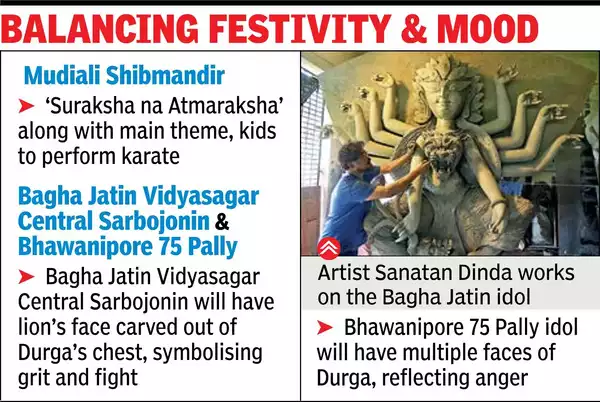
The Chief Minister’s strong remarks hinted at the role of political adversaries in spreading this false narrative. Without directly naming the Bharatiya Janata Party (BJP), Banerjee pointed out the involvement of opposition party-affiliated IT cells in fueling this controversy. She claimed that these groups were deliberately spreading misinformation to create communal unrest and diminish the public’s faith in her administration.
This accusation was not baseless, as Banerjee cited instances where fake news had previously been circulated to discredit the TMC government, often with communal undertones. She emphasized that her administration would never indulge in divisive politics, particularly around a festival as sacred and unifying as Durga Puja.
“The people who are spreading such false news do not understand Bengal’s culture. Those who have never participated in Durga Pujas are the ones making such claims,” Banerjee said(
In a move to prevent further spread of misinformation, the West Bengal Police also issued warnings on social media, advising citizens not to forward or believe any such messages. They labeled the rumors as fake news and indicated that legal action would be taken against those responsible for creating panic and unrest(
Durga Puja in the Larger Context: More Than Just a Festival
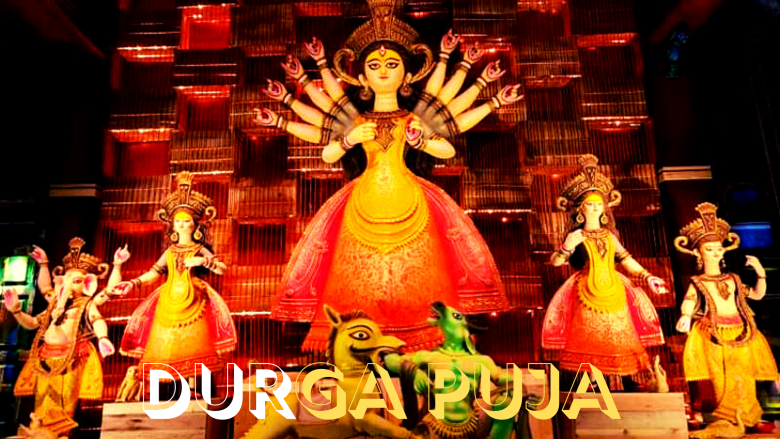
Durga Puja is more than just a religious occasion in West Bengal—it’s a celebration of art, culture, and community. Each year, neighborhoods compete to design the most artistic and creative pandals, drawing inspiration from a wide array of themes, ranging from mythology to contemporary social issues. The festival is an opportunity for artisans to showcase their talent, for families to come together, and for communities to unite in celebration.
From an economic perspective, Durga Puja is crucial for the local economy. Small businesses, from flower sellers to food vendors, see a significant boost during the festivities. Artisans who create the intricate idols of Goddess Durga and craftsmen who design the elaborate pandals depend heavily on the income generated during this time. A ban or even a significant restriction on the festival would have devastating effects on these livelihoods.
Mamata Banerjee, who has long positioned herself as a champion of Bengal’s culture, understands this well. She has often emphasized that the state’s festivals, including Durga Puja, Kali Puja, and Chhath Puja, reflect the communal harmony that Bengal has maintained for generations. During her speech, Banerjee reiterated that the celebrations would go on as planned, with the support of the government to ensure they are safe and inclusive
Religious and Cultural Unity: Banerjee’s Broader Message
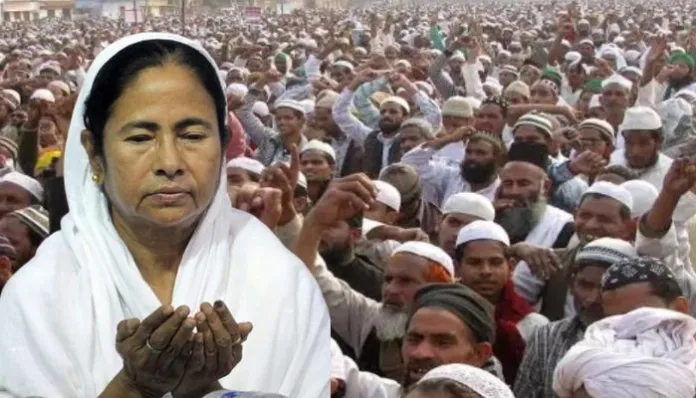
The Chief Minister used the platform not only to debunk the rumors but also to promote a message of unity and inclusivity. She reminded the audience that Bengal is a land of diverse religious practices, where festivals of all communities are celebrated with equal fervor. Whether it is Durga Puja, Eid, Christmas, or any other festival, Banerjee stressed that all religions and communities are respected in Bengal.
“West Bengal is known for its spirit of unity. We celebrate all festivals—Durga Puja, Eid, Diwali, Christmas—with equal enthusiasm. Let us not fall prey to those who want to divide us. They should understand that Bengal’s soul is its harmony and culture,” Banerjee said(
Her comments come in the broader context of the political and religious polarization that has been observed in various parts of India over the past few years. Banerjee’s government has positioned itself as a bulwark against communal forces, and her response to the Durga Puja rumor was very much in line with that stance.
Security Measures and the Pandemic Context

While Mamata Banerjee assured the public that Durga Puja celebrations would proceed, she also emphasized the need for caution, especially in light of the ongoing global health situation. In previous years, the state government had implemented strict health protocols to prevent the spread of COVID-19 during the festival. Though the pandemic is now under greater control, Banerjee urged citizens to continue being cautious.
“While we celebrate, let us not forget to take care of each other. The administration will be there to ensure safety, but it is also the responsibility of the people to follow guidelines and keep the celebrations joyful yet safe,” Banerjee said
This balance between celebration and caution reflects Banerjee’s pragmatic approach to governance. By emphasizing safety and unity, she sought to reassure the public that the state government is both protective of tradition and responsible in ensuring public health.
The Politics of Religion in Bengal

The rumors of a Durga Puja ban come in the context of the highly charged political atmosphere in West Bengal. The state has been a battleground for the TMC and the BJP, with the latter making significant inroads in recent elections. Religion has often been a point of contention in this political battle, with the BJP accusing the TMC of minority appeasement, while Banerjee has accused the BJP of trying to create communal discord in the state.
Durga Puja, being such an integral part of Bengal’s identity, often becomes a focal point of this political struggle. The BJP has accused Banerjee’s government of neglecting Hindu festivals in favor of minority ones, while the TMC has positioned itself as a protector of Bengal’s pluralistic culture. The rumors of a Durga Puja ban are, therefore, not just about the festival but also reflect the larger political and religious tensions in the state
Conclusion: Durga Puja Will Go On
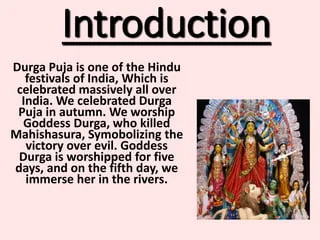
In dispelling the rumors of a Durga Puja ban, Mamata Banerjee sent a clear message: Bengal’s traditions will not be undermined by political gamesmanship. She framed the festival as a symbol of unity, inclusivity, and resilience—a reflection of Bengal’s spirit. By emphasizing that Durga Puja will proceed as planned, she reassured the public that the state government stands by its cultural heritage while also standing firm against attempts to divide it along communal lines.

